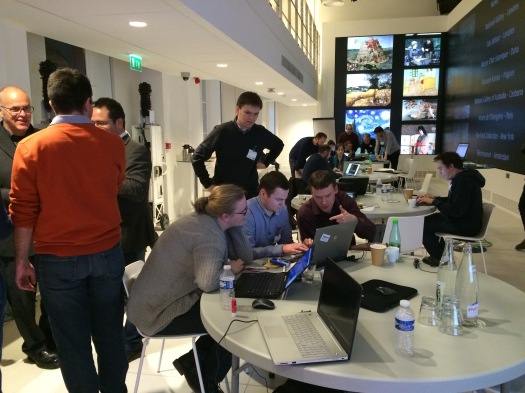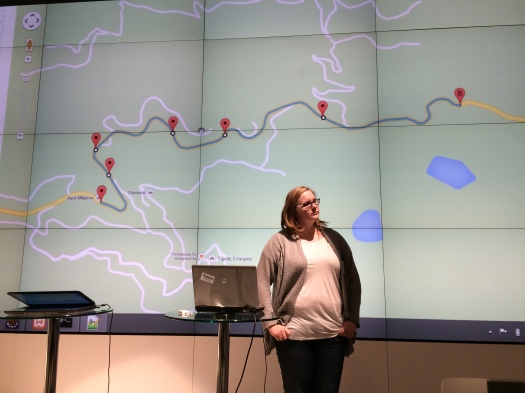
Hackathon in progress at the Google Cultural Institute

Aleksandra Nowak presenting at the Hackathon
Unfortunately the time for “hacking” was quite limited and we could not implement all the functionalities that we aimed to. However, we believe that a further development of this application will be quite easy since the main points have been developed. We also think that the tool for indexing the data into Solr might be integrated into the MORE workflow so that the data would automatically appear in the index.
After the coding was finished we presented our idea to the jury and to the other participants.The jury made its choice and the winning project was announced.
Several teams of developers took part in the hackathon. Most of them focused on extending the MORE aggregator. In particular, they presented a community extension for the MORE aggregator that instantly shows tasks performed by other users, a plugin which could move cultural objects closer to social media, an idea for integrating MORE with a cloud sourcing platform that improves geolocalization metadata, and the winning project – a metadata validator where users can define specific rules to check the validity of their metadata.
As a general suggestion, it would be good to extend the duration of future hackathons by a few hours or even a couple of days. This would allow us to present not just a prototype but possibly a working application.
We had great fun at the LoCloud Hackathon. It gave us the opportunity to find out more about the project and to work with new tools and APIs. It was a great experience for us and we look forward to taking part in future LoCloud hackathon.
